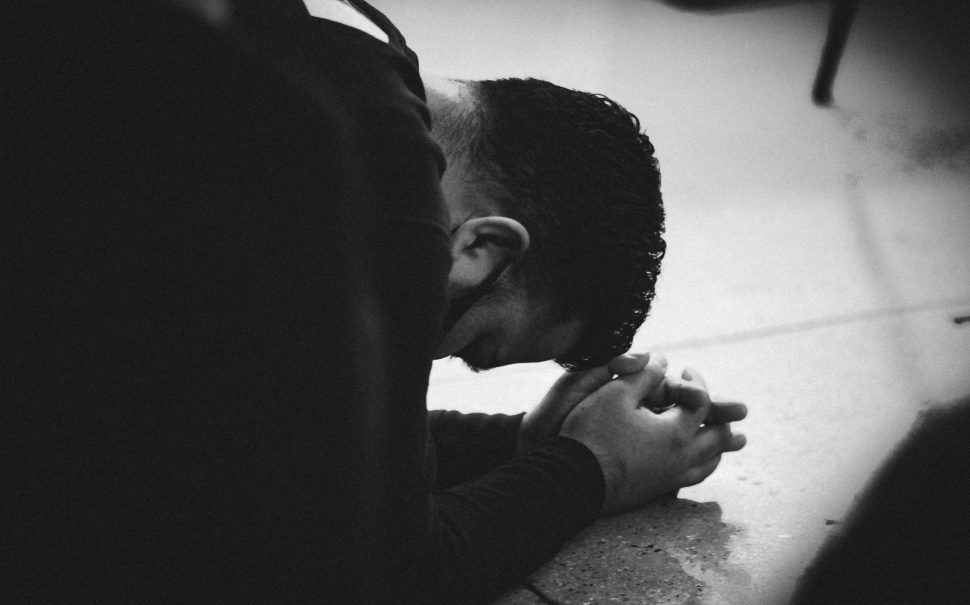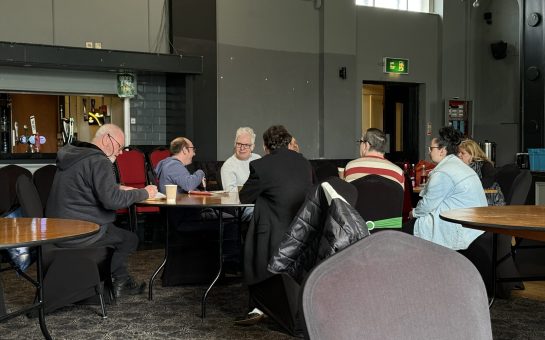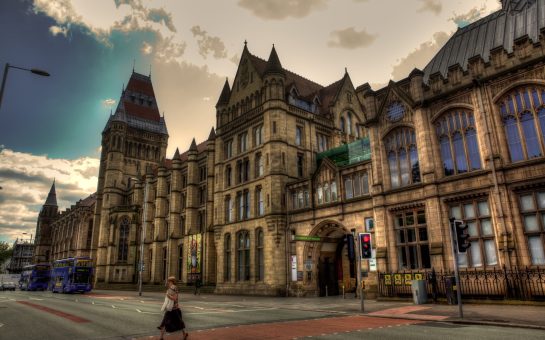Religious hate crimes in Greater Manchester rose in the year ending March 2024, according to new data from the Home Office.
The region saw religious hate crime incidents rise by 27% compared with the previous year – rising from 867 offences in 2022/23 to 1,098 in 2023/24.
While this spike did not reach the levels of 2018 and 2019 – the years following the Brexit referendum and a number of terrorist attacks across the UK – it was the third highest annual number of religious hate crimes in Greater Manchester’s recorded history.
This increase – mirrored in both London and England and Wales – comes despite a reduction in the total number of hate crime incidents in Greater Manchester.
In England and Wales, that 12-month period saw the highest annual number of religious hate crimes in the UK’s entire recorded history of this data.
Hate crimes are defined as ‘any criminal offence which is perceived by the victim or any other person, to be motivated by hostility or prejudice’ towards a characteristic such as race, religion, gender, and sexual orientation.
Greater Manchester’s religious hate crime offences amounted to nearly 11% of its total hate crime incidents in that 12-month period, compared with the 7.5% in the previous year.
Finding community in difficult times
One of the primary victims of this rise in religious hate crime is the Jewish community.
Rabbi Dovid Lewis of the South Manchester Synagogue shared that Jewish shops have been vandalised, synagogues have been broken into, and his own niece was attacked on the London underground.
In these challenging times, Rabbi Lewis has continued to share a message of unity. Together with Dr Nasser Kurdy, a former imam, they have delivered talks on tolerance and peace to over 5000 young people.
“Some of the schools that we go to – the kids, they think it is going to be a showdown. A boxing match”, he said.
Much to the contrary, their talks highlight that despite having differing opinions, the two friends can respect each other’s beliefs. “We have room for each other’s narrative.”
The rabbi and the South Manchester Synagogue have had their own experiences of community spirit. After the events of 7 October 2023, there has been noticeably more support from neighbours, friends, and even complete strangers, according to him.
“People had gone online and looked for Jewish communities and our name would come up. They sent emails saying ‘You don’t know me but I just want to say that I stand by you’.”
In a message to all Mancunians, the rabbi said: “This city will always be a multicultural place. There’s over 200 languages spoken in Manchester. There are people of all faiths, all religions.
“And the one thing that unites all of us is the fact that we are loving Mancunians. There’s nobody better to go and have a drink and a sit down with than a Manc.”
Losing a sense of belonging
For the Muslim community, the events of the past 18 months have made them question their place in Britain, according to Iman Atta OBE.
As director of Tell MAMA, an independent organisation that looks to address anti-Muslim hate, she recorded nearly 5,000 cases of anti-Muslim hate crime in the year following the 7 October terrorist attacks and proceeding conflict in Gaza.
She said: “It’s unlike anything we recorded in over a decade of our work.
“The war on Gaza has left some questioning their safety and sense of belonging in the UK – a feeling compounded by the far-right violence in parts of the country following the horrific stabbings in Southport.”
In a Tell MAMA poll of British Muslims in July 2024, 60% of those surveyed said that anti-Muslim hate in British society has increased over the past year. Nearly one in three British Muslims are uneasy or uncomfortable about their safety since 7 October 2023, Atta highlighted.
Causes and trigger events
Hate crime levels in the UK don’t increase or decrease in gentle slopes – they peak sharply after particular events take place in society.
These instances are called ‘trigger events’, and the Israel-Hamas conflict was the primary trigger event for the rise in religious hate crimes in 2023 and 2024, according to the Home Office.
It said: “This increase was driven by a rise in hate crimes against Jewish people and to a lesser extent Muslims and has occurred since the beginning of the Israel-Hamas conflict.”
In the six-month period before Hamas’ terrorist attacks, police-recorded hate crimes against Jews in England and Wales sat at just over 100 per month on average. In the six months following the terrorist incident, that number more than tripled to 326 per month.
Other examples of trigger events include the 2016 Brexit Referendum, and the 2017 Manchester Arena Bombing. The sharp rise in religious and racial hate crimes originating from these events can be seen in the diagram below:
The next steps
One approach to addressing hate crimes is to take a closer look at the offenders and their motivations, according to Professor David Gadd of the University of Manchester’s Criminology Department.
Speaking about the recent Southport riots, Professor Gadd said: “There needs to be some work to speak to the people who did the rioting, about why they did it. Unfortunately in my experience, the extra punitive tariff that gets applied to hate crime offenders is hardly ever used to ask that question.
“People just go to prison for longer or go on probation for longer, and we don’t use that expensive punishment time to ask ‘Why did you do it?’ and ‘What was going on in your life?’
“It’s a bit like recycling: we don’t just throw our rubbish away and it disappears. If you don’t do something with it, it just becomes rotting landfill.
“It’s very much the same with people who do terrible things. We need to engage with their reasons for being hateful, however misconceived, if we are to have a hope of reducing racially motivated crime.”




